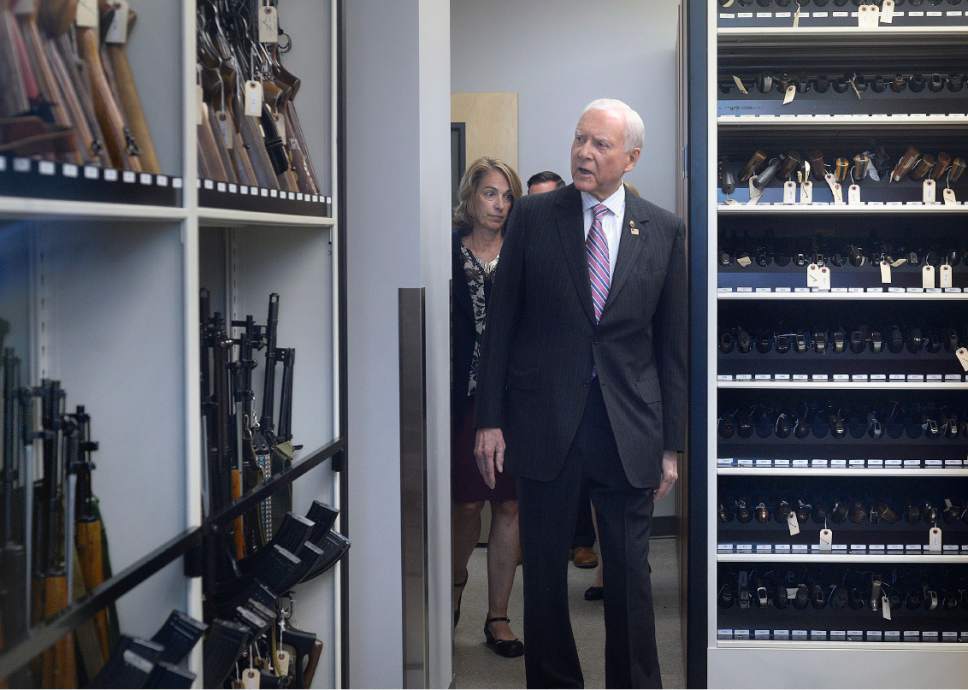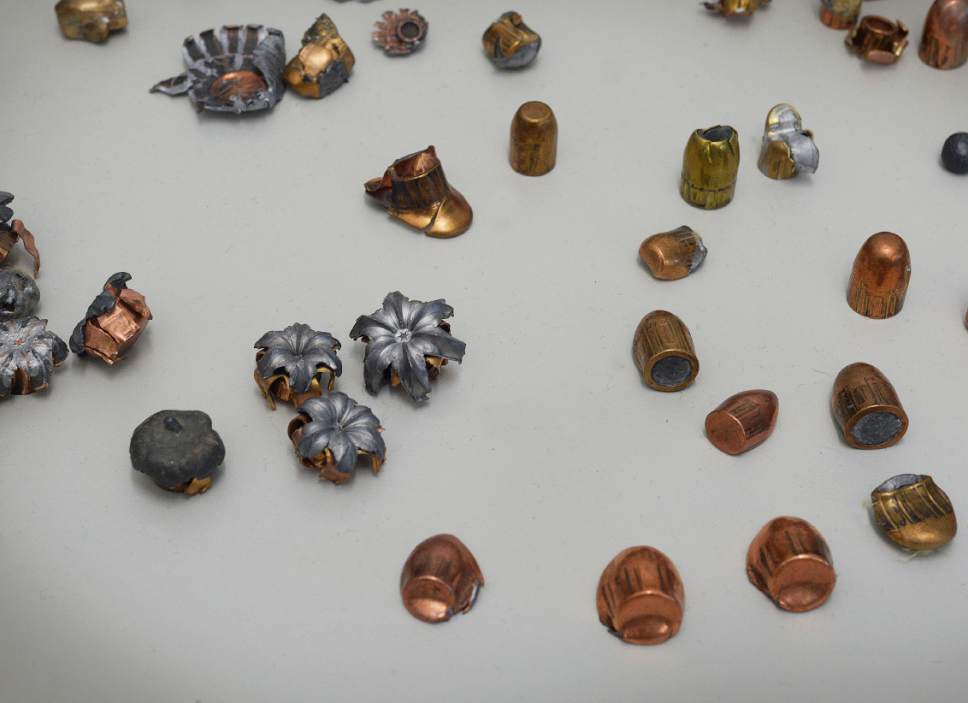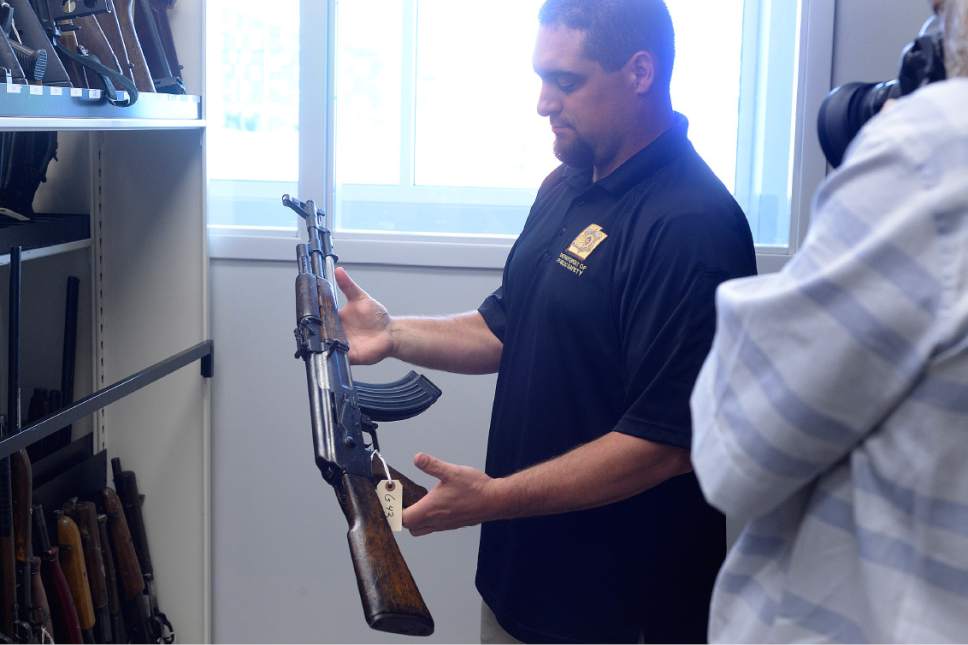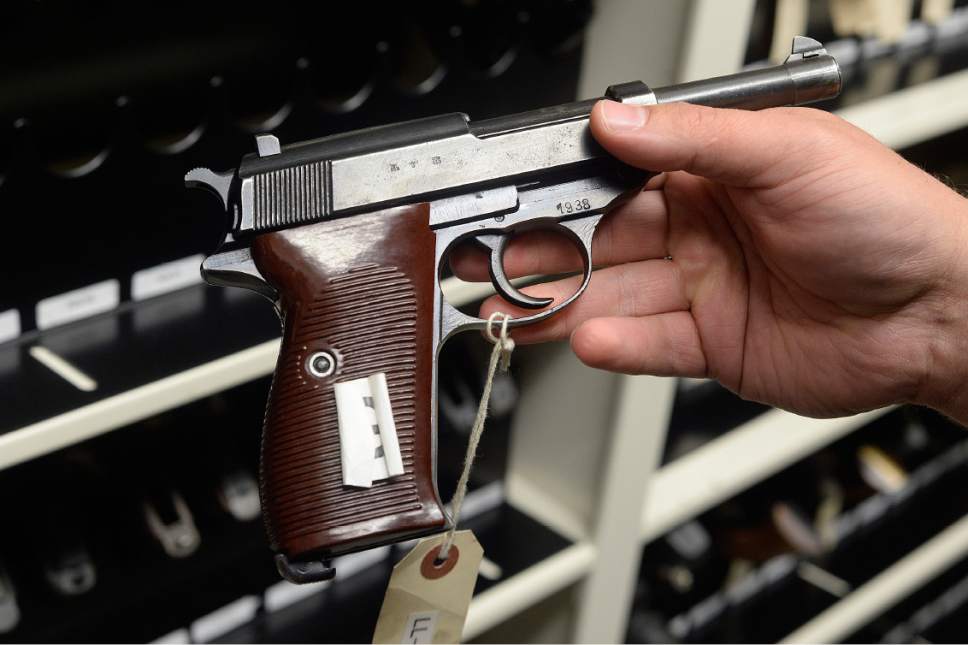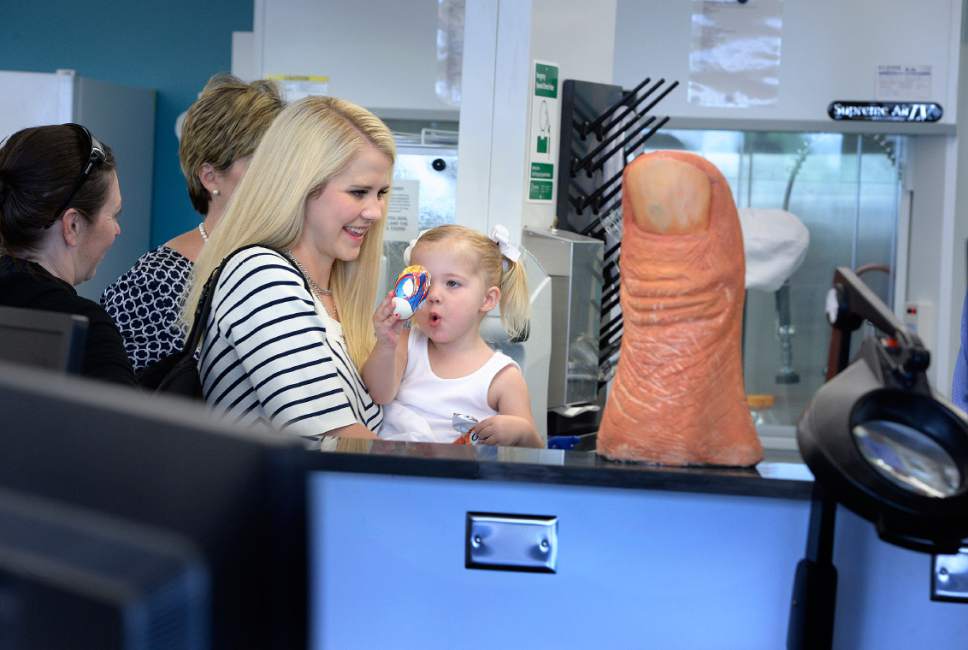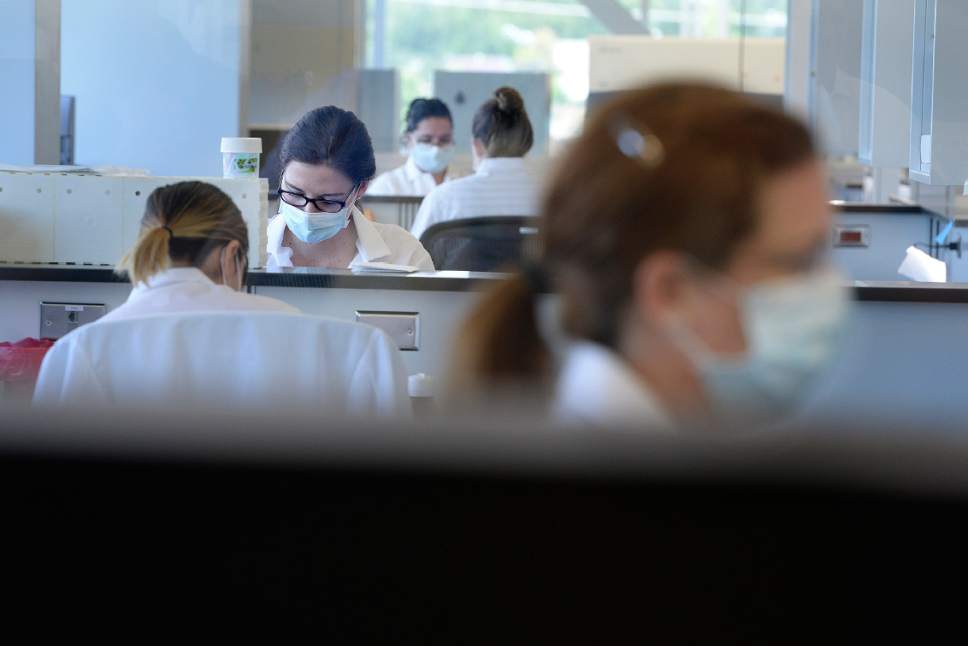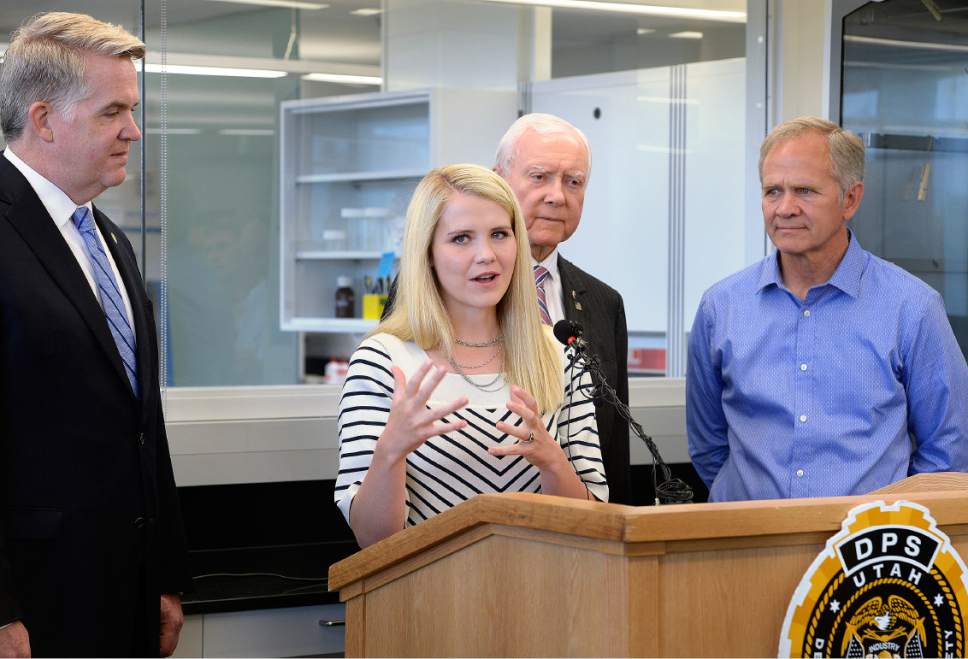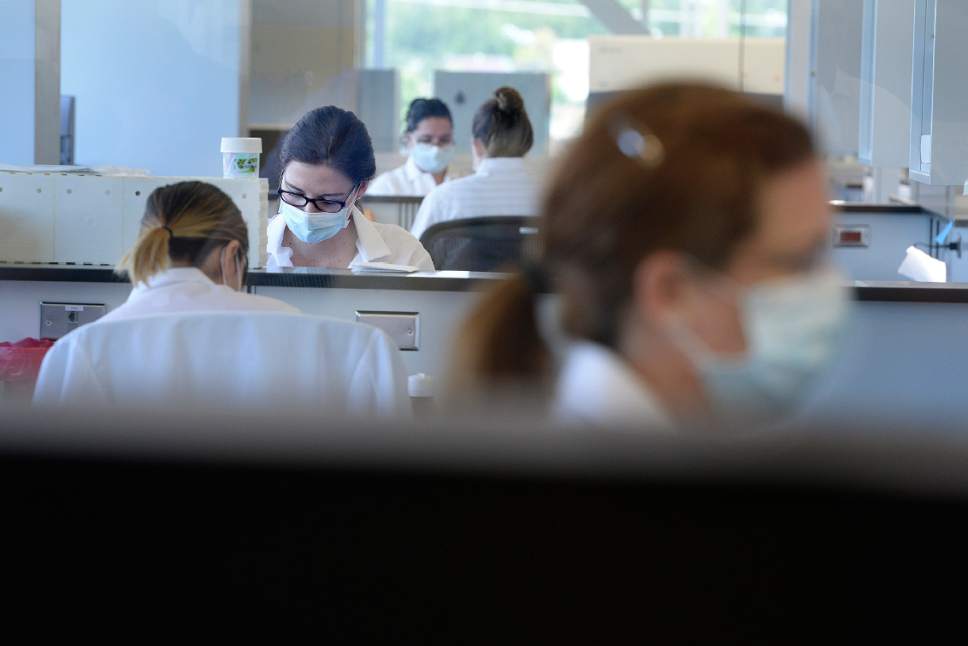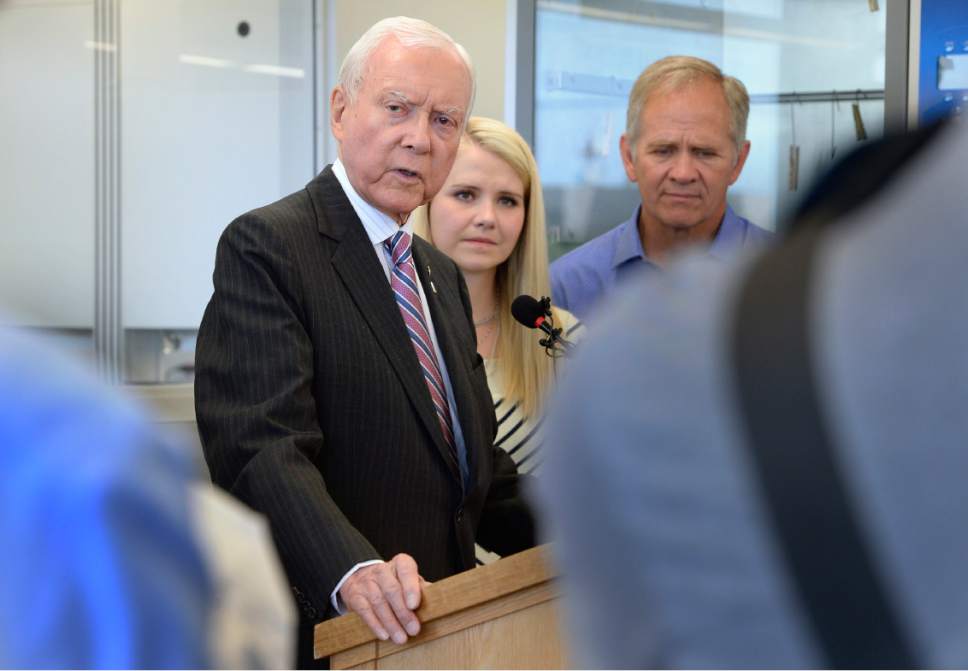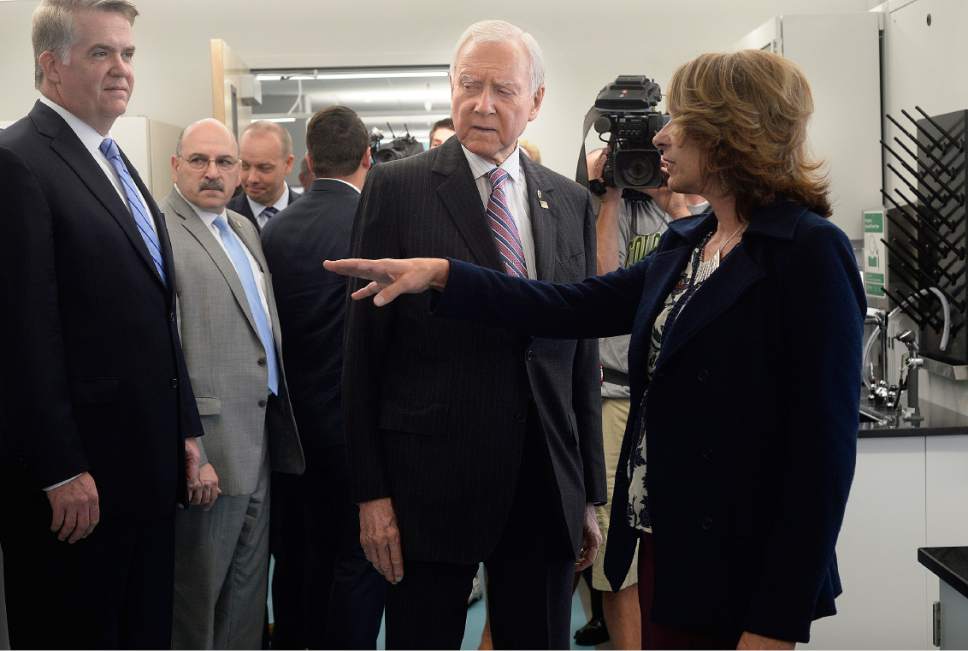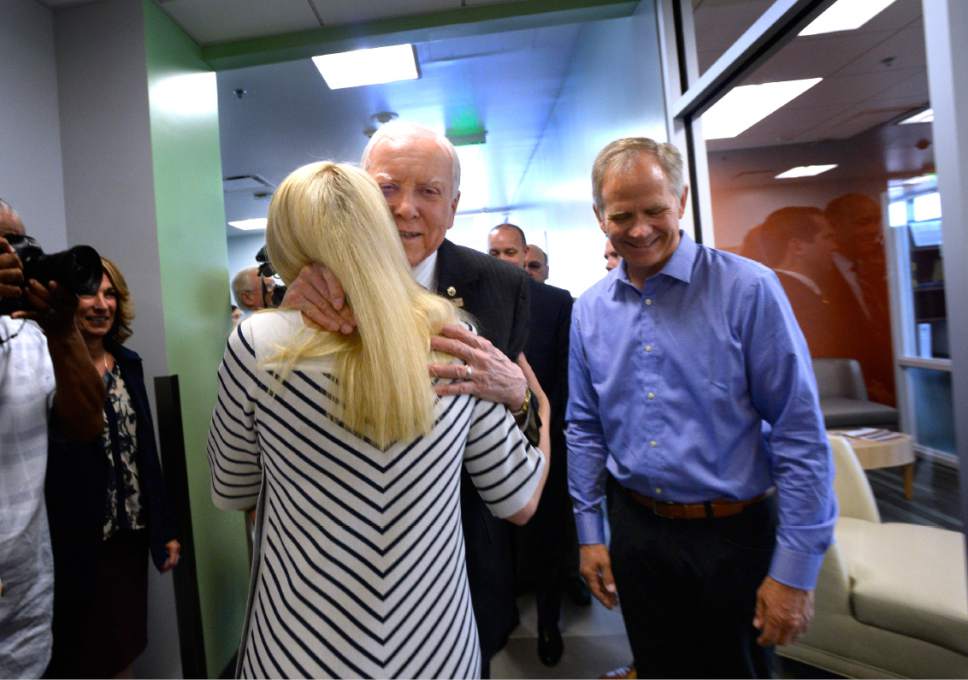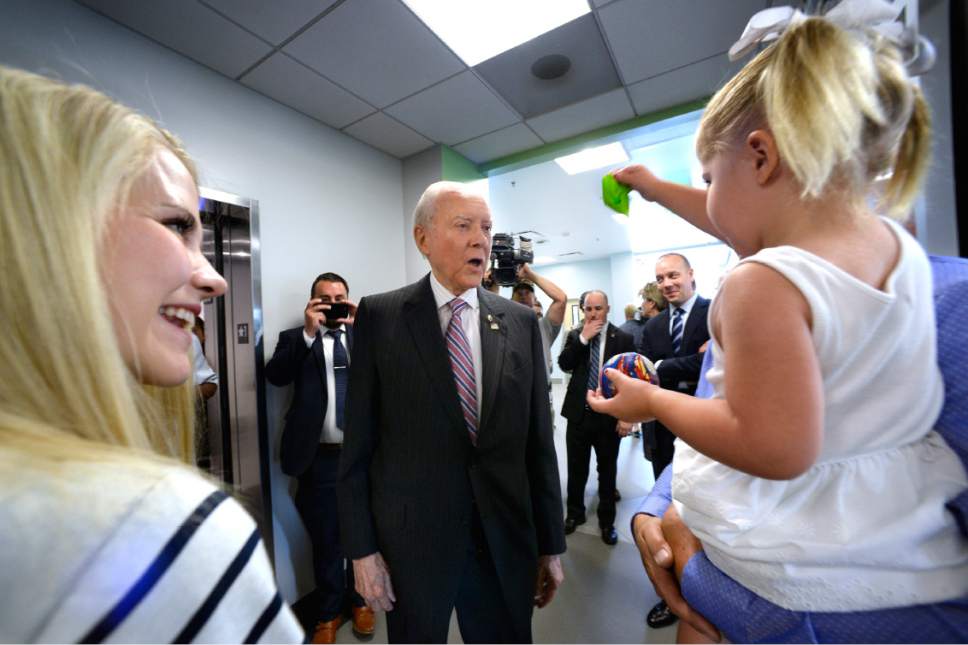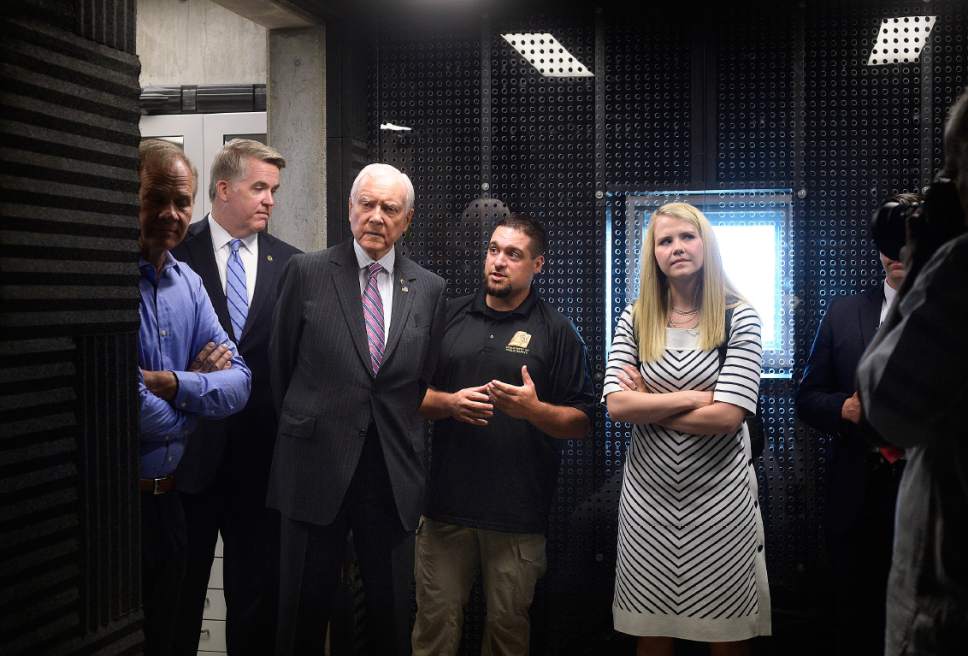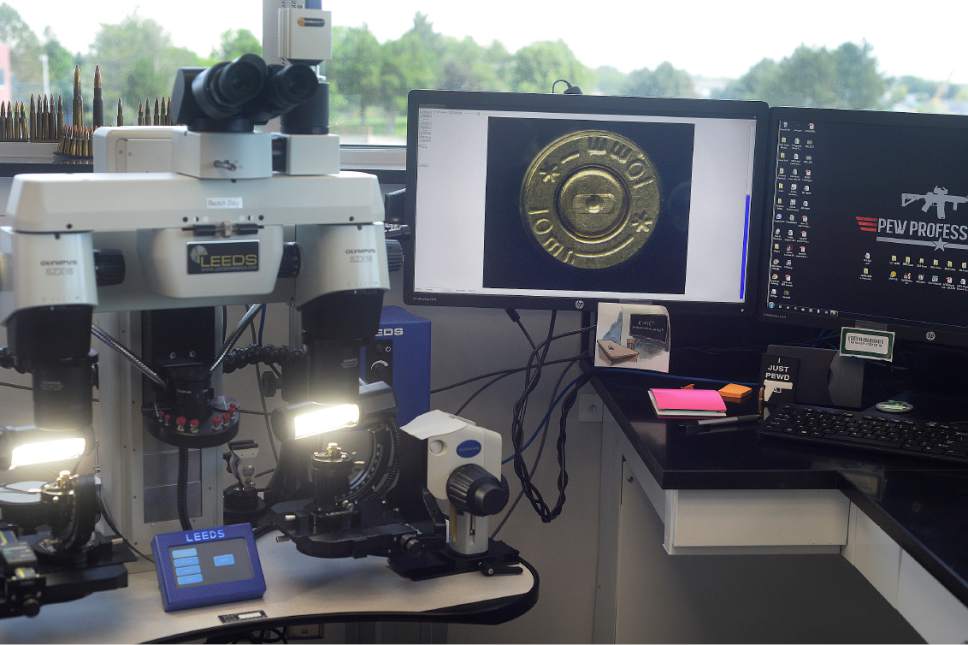This is an archived article that was published on sltrib.com in 2017, and information in the article may be outdated. It is provided only for personal research purposes and may not be reprinted.
Taylorsville • As Sen. Orrin Hatch toured Utah's newest crime lab Thursday, he reacted to each room with much the same awe and intrigue.
The vault storing 1,200 guns and rifles? "That's impressive."
The shooting range with a plexiglass wall? "This is good. This is good for me to see."
The drug-analysis lab that tests evidence for traces of cocaine and marijuana? "Well that's interesting."
Hatch was perhaps the most enraptured, though, when the facility's forensic scientists discussed their efforts to speed up DNA processing — which has been a pet project for the senator over the past two legislative sessions.
"It's taken years, sometimes, to develop DNA. And that's ridiculous," he said. "We want to be able to get it down to where it takes us a few days."
The crime lab's current turnaround is about two months, though new robotic equipment and an influx of recently trained employees could bring that down to about 30 days, said Pilar Shortsleeve with the Utah Bureau of Forensic Services.
Hatch's "Rapid DNA" legislation, which has passed in the Senate and is pending in the House, looks to expedite that testing even further: 90 minutes or less, including comparing those results to the national database.
The bill would lift regulations on collecting DNA samples to allow police officers to conduct cheek swabs on individuals booked into jail and bypass using results only from accredited labs. That could mean more quickly linking suspects to unsolved crimes or exonerating innocent individuals, Hatch said while pitching the bill Thursday.
Some civil-rights groups have expressed concerns about the increasing practice of taking DNA samples from suspects before conviction and keeping results in an ever-expanding database. Stewart Gollan, executive director of the Utah Association of Criminal Defense Lawyers, is concerned about the reliability of results that don't come from an accredited facility.
"Taking somebody's DNA is, in some sense, invasive," he said, hoping also that the bill wouldn't lower standards for probable cause.
Still, Hatch has the support of Elizabeth Smart, who accompanied him on the tour and has provided input on the bill. She hopes the quicker testing will return the focus to victims, who "get left in the dust" once a perpetrator is named.
"Anyone who kidnaps a child definitely deserves to be in prison," she said. "Anyone who sexually abuses a woman, a child, a man deserves to be in prison. And this will help that."
Smart was held captive for nine months in the Utah mountains. Her convicted kidnapper and rapist, Brian David Mitchell, and his wife, Wanda Eileen Barzee, pulled the then-14-year-old Salt Lake City girl from her bed at knifepoint in June 2002.
She was rescued in March 2003 and since has become a child-safety activist.
On Thursday, Smart pushed a stroller around the crime lab with her two-year-old daughter, Chloe, and baby son. Hatch greeted the kids, cooing "Who's this?" and "How are you?"
Smart's father, Ed Smart, stood nearby and smiled; he believes faster DNA results are critical in "getting answers that families are looking for."
The group of about 25 staffers and administrators — including Utah's U.S. Attorney John Huber — slowly crept through the building, opened in early June, discussing bullet casings and fingerprint charts for more than an hour. Hatch, wearing a striped suit and black sneakers, shook hands with employees in white lab coats. When his voice faltered during one such introduction, the 83-year-old senator joked, "I'm afraid it's my age."
He pushed on, though, touting the facility and his bill as the better, smarter, faster approach.
"Utah is setting a standard that I think a lot of other states would do well to follow, especially in this era of drugs and crime," he said.
Hatch, a key player in modifying the current health-care legislation, also briefly answered questions from reporters Thursday on the Senate's bill to repeal and replace Obamacare.
A vote on the measure was postponed last week as GOP favor began to fade. The Senate cannot afford to lose the support of more than two conservative senators, though at least five have announced their intentions to vote against the measure — that includes Utah's Republican Sen. Mike Lee.
While Hatch commended Lee as someone "sincere" and "dedicated" to reducing regulations in the bill, he encouraged his colleague to embrace the "art of the doable" in voting to pass the legislation.
Hatch added: "There's no absolute way to solve every problem we have with one bill."
Twitter: @CourtneyLTanner


